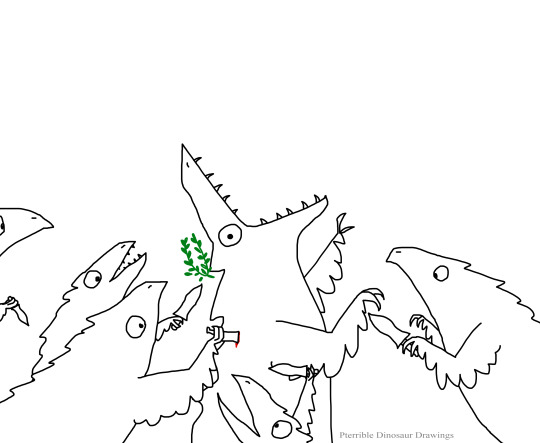Text
I'm just going to leave this here, because this woman said what I've been trying to articulate for ages much more effectively and succinctly than I've been able to
25K notes
·
View notes
Text
Feedback Needed Regarding the ELVIS Act
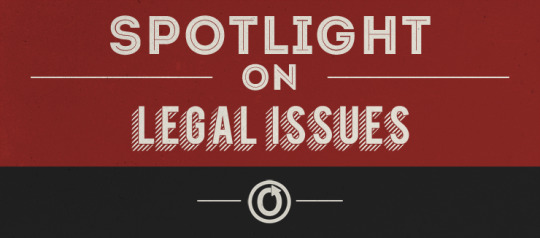
The ELVIS Act may pass soon in Tennessee and OTW Legal is concerned about the potential impact of this act on a variety of fannish activities. Read more at https://otw.news/4xx
230 notes
·
View notes
Text
The person who runs this blog is a certified sheith loving bitch.
518 notes
·
View notes
Photo
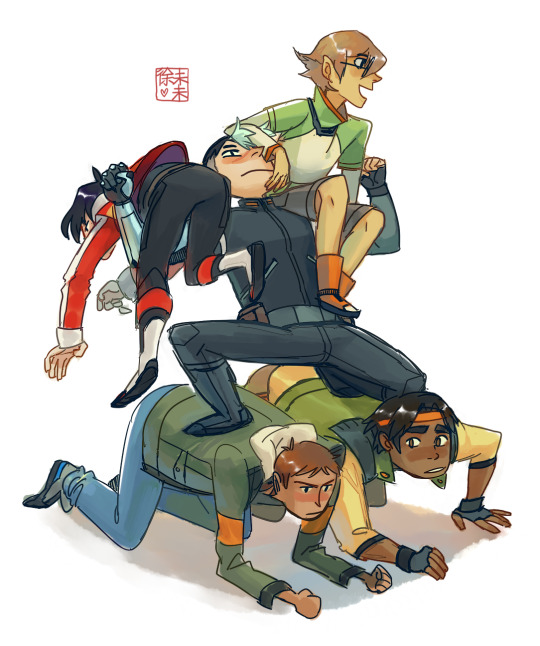
F O R M V O L T R O N B O Y S
(has anyone done this yet???)
(lance is gonna pass out in 30 seconds but his game face is on)
25K notes
·
View notes
Text
I´ve lately seen many young peeps in fandom spaces, worrying about openly shipping their ships because of what antis might do
so let me tell you something:
antis are huge losers who are gonna find something to hate you for no matter what you do
even if you ship EXACTLY what they ship, theyre gonna yell at you for "not shipping it right"
so, my piece of advice: just do whatever you want and tear up the house! antis are gonna hate no matter what, so ignore them and find some good companions by being yourself
9K notes
·
View notes
Text
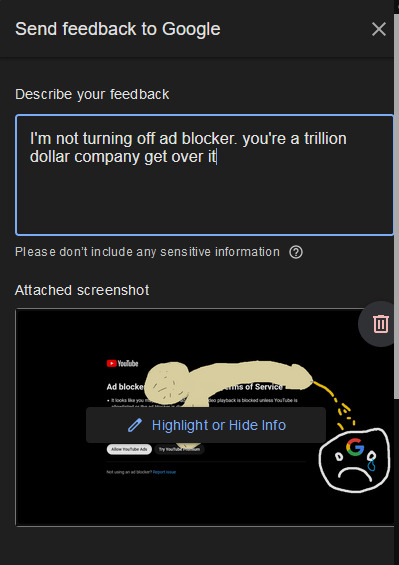
169K notes
·
View notes
Text
Long covid has derailed my life. Make no mistake: It could yours, too.
By Madeline Miller for the Washington Post, August 9th, 2023.
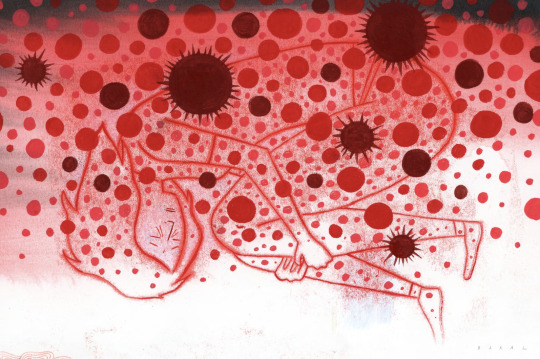
Audio version available in the inline link.
Madeline Miller, a novelist, is the author of “The Song of Achilles” and “Circe.”
In 2019, I was in high gear. I had two young children, a busy social life, a book tour and a novel in progress. I spent my days racing between airports, juggling to-do lists and child care. Yes, I felt tired, but I come from a family of high-energy women. I was proud to be keeping the sacred flame of Productivity burning.
Then I got covid.
I didn’t know it was covid at the time. This was early February 2020, before the government was acknowledging SARS-CoV-2’s spread in the United States.
In the weeks after infection, my body went haywire. My ears rang. My heart would start galloping at random times. I developed violent new food allergies overnight. When I walked upstairs, I gasped alarmingly.
I reached out to doctors. One told me I was “deconditioned” and needed to exercise more. But my usual jog left me doubled over, and when I tried to lift weights, I ended up in the ER with chest pains and tachycardia. My tests were normal, which alarmed me further. How could they be normal? Every morning, I woke breathless, leaden, utterly depleted.
Worst of all, I couldn’t concentrate enough to compose sentences. Writing had been my haven since I was 6. Now, it was my family’s livelihood. I kept looking through my pre-covid novel drafts, desperately trying to prod my sticky, limp brain forward. But I was too tired to answer email, let alone grapple with my book.
When people asked how I was, I gave an airy answer. Inside, I was in a cold sweat. My whole future was dropping away. Looking at old photos, I was overwhelmed with grief and bitterness. I didn’t recognize myself. On my best days, I was 30 percent of that person.
I turned to the internet and discovered others with similar experiences. In fact, my symptoms were textbook — a textbook being written in real time by “first wavers” like me, comparing notes and giving our condition a name: long covid.
In those communities, everyone had stories like mine: life-altering symptoms, demoralizing doctor visits, loss of jobs, loss of identity. The virus can produce a bewildering buffet of long-term conditions, including cognitive impairment and cardiac failure, tinnitus, loss of taste, immune dysfunction, migraines and stroke, any one of which could tank quality of life.
For me, one of the worst was post-exertional malaise (PEM), a Victorian-sounding name for a very real and debilitating condition in which exertion causes your body to crash. In my new post-covid life, exertion could include washing dishes, carrying my children, even just talking with too much animation. Whenever I exceeded my invisible allowance, I would pay for it with hours, or days, of migraines and misery.
There was no more worshiping productivity. I gave my best hours to my children, but it was crushing to realize just how few hours there were. Nothing was more painful than hearing my kids delightedly laughing and being too sick to join them.
Doctors looked at me askance. They offered me antidepressants and pointed anecdotes about their friends who’d just had covid and were running marathons again.
I didn’t say I’d love to be able to run. I didn’t say what really made me depressed was dragging myself to appointments to be patronized. I didn’t say that post-viral illness was nothing new, nor was PEM — which for decades had been documented by people with myalgic encephalomyelitis/chronic fatigue syndrome — so if they didn’t know what I was talking about, they should stop sneering and get caught up. I was too sick for that, and too worried.
I began scouring medical journals the way I used to close-read ancient Greek poetry. I burned through horrifying amounts of money on vitamins and supplements. At night, my fears chased themselves. Would I ever get relief? Would I ever finish another book? Was long covid progressive?
It was a bad moment when I realized that any answer to that last question would come from my own body. I was in the first cohort of an unwilling experiment.
When vaccines rolled out, many people rushed back to “normal.” My world, already small, constricted further.
Friends who invited me out to eat were surprised when I declined. I couldn’t risk reinfection, I said, and suggested a masked, outdoor stroll. Sure, they said, we’ll be in touch. Zoom events dried up. Masks began disappearing. I tried to warn the people I loved. Covid is airborne. Keep wearing an N95. Vaccines protect you but don’t stop transmission.
Few wanted to listen. During the omicron wave, politicians tweeted about how quickly they’d recovered. I was glad for everyone who was fine, but a nasty implication hovered over those of us who weren’t: What’s your problem?
Friends who did struggle often seemed embarrassed by their symptoms. I’m just tired. My memory’s never been good. I gave them the resources I had, but there were few to give. There is no cure for long covid. Two of my friends went on to have strokes. A third developed diabetes, a fourth dementia. One died.
I’ve watched in horror as our public institutions have turned their back on containment. The virus is still very much with us, but the Centers for Disease Control and Prevention has stopped reporting on cases. States have shut down testing. Corporations, rather than improving ventilation in their buildings, have pushed for shield laws indemnifying them against lawsuits.
Despite the crystal-clear science on the damage covid-19 does to our bodies, medical settings have dropped mask requirements, so patients now gamble their health to receive care. Those of us who are high-risk or immunocompromised, or who just don’t want to roll the dice on death and misery, have not only been left behind — we’re being actively mocked and pathologized.
I’ve personally been ridiculed, heckled and coughed on for wearing my N95. Acquaintances who were understanding in the beginning are now irritated, even offended. One demanded: How long are you going to do this? As if trying to avoid covid was an attack on her, rather than an attempt to keep myself from sliding further into an abyss that threatens to swallow my family.
The United States has always been a terrible place to be sick and disabled. Ableism is baked into our myths of bootstrapping and self-reliance, in which health is virtue and illness is degeneracy. It is long past time for a bedrock shift, for all of us.
We desperately need access to informed care, new treatments, fast-tracked research, safe spaces and disability protections. We also need a basic grasp of the facts of long covid. How it can follow anywhere from 10 to 30 percent of infections. How infections accumulate risk. How it’s not anxiety or depression, though its punishing nature can contribute to both those things. How children can get it; a recent review puts it at 12 to 16 percent of cases. How long-haulers who are reinfected usually get worse. How as many as 23 million Americans have post-covid symptoms, with that number increasing daily.
More than three years later, I still have long covid. I still give my best hours to my children, and I still wear my N95. Thanks to relentless experimentation with treatments, I can write again, but my fatigue is worse. I recognize how fortunate I am: to have a caring partner and community, health insurance, good doctors (at last), a job I can do from home, a supportive publishing team, and wonderful readers who recommend my books. I’m grateful to all those who have accepted the new me without making me beg.
Some days, long covid feels manageable. Others, it feels like a crushing mountain on my chest. I yearn for the casual spontaneity and scope of my old life. I miss the friends and family who have moved on. I grieve those lost forever.
So how long am I going to do this? Until indoor air is safe for all, until vaccines prevent transmission, until there’s a cure for long covid. Until I’m not risking my family’s future on a grocery run. Because the truth is that however immortal we feel, we are all just one infection away from a new life.
17K notes
·
View notes
Text
Some have already admitted that KOSA will be used to censor LGBTQ content, especially that which relates to gender-affirming care. 29 Armed with cherry-picked and selectively interpreted studies associating trans content with “anxiety, depression . . . and suicidal behavior,” an ambitious attorney general will claim that “evidence-informed medical information” 30 requires that platforms prohibit minors from viewing such content under KOSA’s duty of care.
They're claiming that KOSA has been fixed. It hasn't been. Please read this detailed explanation of what's wrong with the current version of the bill and then CALL YOUR REPS.
7K notes
·
View notes
Text
To all my fellow poor bastards who just got the new twitter-style tumblr dashboard
You can fix it via:
Dashboard Unfucker
or
Old Tumblr Dashboard (July 2023)
1. Add-on the Stylus extension (Firefox) (Chrome) (Edge)
2. Click blue "Install" button on the Old Tumblr Dashboard webpage
5K notes
·
View notes
Text
EFF: Congress Amended KOSA, But It’s Still A Censorship Bill. Despite small changes, the Kids Online Safety Act “is a censorship bill that will harm the rights of both adult and minor users. We oppose it, and urge you to contact your congressperson about it today.”
#not a shitpost#but tired of this shit#it's not our or the government's job to babysit your kids online
5K notes
·
View notes
Text
people who say “I block for spam liking” like damn sorry that you hate joy. Every time someone goes through and likes 3829278 posts on my blog I’m filled with a love and power that you will never know and I pity you
111K notes
·
View notes
Text
⚠️ this blog does not support works created by AI software ⚠️
56K notes
·
View notes
Text
I saw some #discourse go by about how adults shouldn’t be in fandom writing about younger characters because it’s uncomfortable and gross to younger people to have adults ‘thinking about them’ in romantic/sexual terms.
1, This is not a restriction that any writers in any other venue have to deal with, wtf, or the entire YA genre would be banished; 2, Excuse you, children of Tumblr, no one is thinking about you.
If other people in fandom are older than you, by definition, they have been your age. When fans write about younger characters, we’re not peering through a keyhole at young people now and creeping on them.
We are drawing on our own experiences, thoughts, feelings and memories of what it was like when we were that age.
No one has the right to ask older writers to cut themselves off from their own past just because young’uns don’t want to acknowledge that people in their 30s, 40s, 50s, 60s, 70s, 80s, 90s, all of them, were also young once. I’m 41, but I remember vividly what it was like to be 14. If I write a high school AU, it’s about my high school experience, even if I were to set it in the present day and decorate it with some (probably comically out of touch) Stuff The Kids Are Into Now. If I write a high school AU with sex, it’s because I remember that too! I’m not thinking about kids today, why would I– I have my own experiences to draw on. And honestly, sometimes there are things about being young that you don’t really understand until you’re much older and have some perspective– and that’s worth writing about.
If someone is genuinely a creeper, you’ll know, because they’ll ask you questions about you. But people who aren’t even directly interacting with you, who are just expressing themselves in fiction, are not a threat to you, and it’s not creepy for them to draw on their own experiences and their own past to write about younger characters.
28K notes
·
View notes
Text
we are in a media literacy crisis
169K notes
·
View notes
